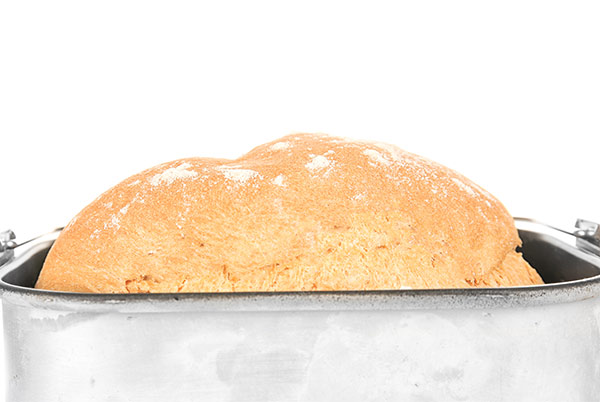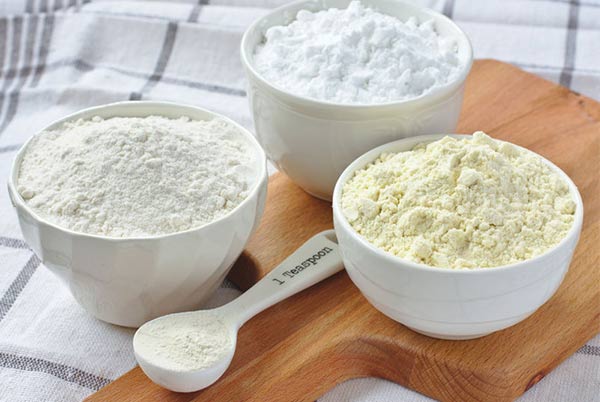Answers from a Gluten Doctor – Part 4: What About Dairy?
Updated Oct 17, 2025, Published Mar 25, 2010
This post contains affiliate links. Please see our disclosure policy.

In part 4 of our series, renowned gluten sensitivity specialist, Dr. Vikki Petersen answers the question of consuming dairy for the gluten intolerant.
I can tolerate dairy fine but you still had me go off of it for 6 weeks in the beginning when I first went off gluten. Why? Is this something you would recommend to others?
As I frequently state in my own blog, if you don’t like change then definitely do not enter the field of clinical nutrition! As more research emerges our recommendations change and the advice you mention was our operating basis several years ago. The reasoning at the time was that since the lactase enzyme is manufactured at the tips of the villi in the small intestine, irritation of these due to gluten sensitivity may very well compromise the production of this enzyme resulting in difficulty digesting dairy products. So it was suggested that dairy be eliminated initially until healing had begun to occur in the intestine.
However as time has passed we’ve come to realize that dairy products should perhaps not be considered a “food” at all! Much like you don’t see human mother’s breast milk for sale on your local grocer’s shelves, it seems that the consuming of another mammal’s milk (designed to feed their young – an animal that weighs 10x more than we do once fully grown) is perhaps not the healthiest food choice.
Add to that the fact that in this country dairy products contain the highest concentration of toxins per gram of any other food, it’s a known source of gut inflammation and a source of xenoestrogens (estrogens that we ingest from our environment) – known carcinogens. [I would recommend the book The China Study to anyone desiring to know more about this.]
Dr. Alessio Fasano from the University of Maryland stated in a wonderful article in Scientific American July 2009 that the presence of gluten in a sensitive individual is not enough to cause problems unless there is already some extant damage in the gut. Could this damage be caused in part from dairy products? Likely.
Organic butter is allowed because it has no antibiotic or hormonal residues due to its organic nature plus since butter is basically fat it has little if any protein milk solids, the culprit in this story.
Fortunately there are a plethora of products available to make your dairy transition an easy one. Some of my favorites are: almond milk, rice milk, coconut milk. For ice cream substitutions try Bliss, it’s a coconut-based ice cream and delicious. For cheese substitutions try daiya. It can be found online at https://www.veganessentials.com/ and some other websites as well. It’s delicious, melts beautifully and is an arrowroot and tapioca base – incredible but true.
And don’t forget to enjoy all of Carol’s dairy-free recipes. She’s a genius!
I hope this helps and please let me know if I can be of further assistance.
More Questions Answered
In case you missed any of this series:
Answers From a Gluten Free Doctor Part 1
Answers From a Gluten Free Doctor Part 2
Answers From a Gluten Free Doctor Part 3
Answers From a Gluten Free Doctor Part 4
Answers From a Gluten Free Doctor Part 5
Answers From a Gluten Free Doctor Part 6
Answers From a Gluten Free Doctor Part 7
Answers From a Gluten Free Doctor Part 8














great post! I have been using coconut milk in my smoothies for 6 months now every since I read it contained the same chemical makeup as mother's breast milk. However I will have to try the vegan cheese to see if it is comparable.
Interesting…but too bad I'm sensitive to almonds and coconut. Guess I'll just have to cut down on dairy as much as I can. And try to do organic when I do have it.
Interesting! I was just talking to a friend about this very subject. Thanks for sharing.
Thank you for this post! I have been omitting wheat / gluten, soy and dairy for a little over a month now due to various health problems. I'm seeing such a huge improvement in how I feel, that I've been hesitant to re-introduce any dairy. But I miss mozzarella cheese like crazy. Maybe I'll wait a bit longer and give it a try.
It is usually the Casein in our milk and cheese that Celiac and Gluten Intolerant people react to with various symptoms.